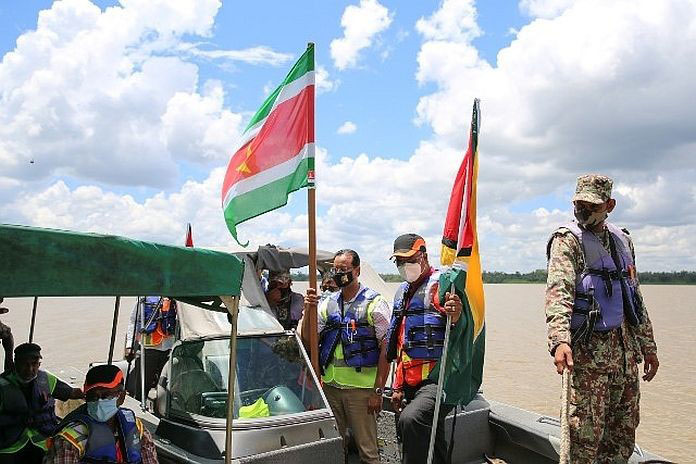The recent disclosure by the authorities in Guyana that the government here has received a number of bids from companies in response to its disclosure that it was seeking to conduct a feasibility study and secure a preliminary design for the construction of a bridge across the Corentyne may well be part of a process that continues to shine a different light on relations between the two countries.
Ironically, while the pursuit of the bridging of the Corentyne River would now appear to be a high-priority assignment for both Georgetown and Paramaribo, it has served, for years, as a symbol of differences between the two countries that may still pose a threat to relatively recent initiatives on both sides to improve relations. The frequent squalls between the two countries arising out of the issue of fishing rights in the Corentyne River have often extended themselves into assertive, sometimes bellicose declarations on both sides to say nothing about hostile moves on the part of the Surinamese military to evict Guyanese fishermen from the river. Diplomatic engagements between the two sides in an effort to address the issue have, invariably, accomplished little if anything.
If the Corentyne River and the right of Guyanese fishermen to ply their trade in the waterway still remains a far from resolved issue, circumstances have now pushed both Paramaribo and Georgetown to see the river in a different light.
It is now hardly a secret that both countries have been ‘gifted’ world class oil finds, a circumstance that has triggered an enhancement in government to government contact between the two capitals, capped by exchange visits to the two countries by their respective presidents. At the bilateral level meanwhile, various initiatives have been floated, all seemingly designed to strengthen ties between the two countries in areas that appear to include exploring possibilities for joint initiatives designed to maximise the returns to the respective countries from their oil ‘wealth’.
The net effect of this has been a flurry of high level contact between the two countries in an atmosphere far removed from the tension that once characterised meetings between diplomats from the two capitals to discuss broader swathes of bilateral issues including, inevitably, access by Guyanese fishermen to the Corentyne River.
What the discourses arising out of the presidential visits to the two capitals have done is to create a shift in the agendas of the discourses. These days, those exchanges embrace mostly matters to do with enhanced levels of bilateral cooperation between the two countries in spheres that have to do with their mutual development.
Following the recent opening of the bids, the local National Procurement and Tender Administration Board (NPTAB) disclosed that it had received six bids from four firms to pursue the undertaking. If the eventual construction of a Corentyne River Bridge remains a priority, the understandings and procedures that will doubtless necessitate continuous engagements between the two capitals, including high-level meetings at both technical and political levels, will probably see the conclusion of formal understandings in the matter of the construction of a bridge across the Corentyne River as a significant step forward in addressing an issue which, even now, still gives rise to interludes of assertive pronouncements and postures in the two capitals.






